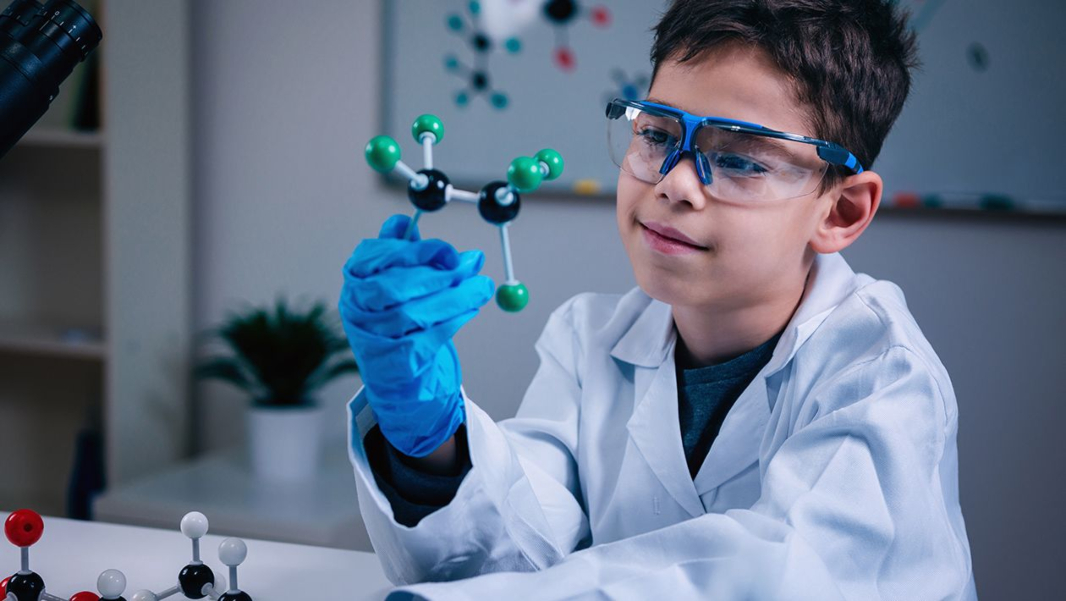The laboratory is that place where great things can be found out to help humanity. Penicillin, X-rays, DNA… all of them were discovered in laboratories by scientists that are considered heroes today.
With such examples, it’s very normal for kids to be very excited those special days of school were teachers take them to the laboratory. Some might already be dreaming with changing the world, others will feel like seeing magic when they observe a cell for the first time. The most important thing for the next generation’s Alexander Fleming is to be aware of the safety conditions in the laboratory.
Clothing
Not every outfit is good to enter a laboratory. Wearing sandals or open shoes, for instance, is not a good idea. If they have long hair it should be tied back – remind them how important is to see what you’re doing. Tell them to leave aesthetics at the lab door – including contact lenses. Those old glasses are safer and more reliable, and they all should wear safety spectacles when needed. Finally, check out they have all protective clothing, such as lab coats, always fastened.
Food
Eating, drinking and chewing gum is not something to do in the laboratory. There are way better spots to make a picnic, and many substances are poisonous, remind your students that they don’t want to add them to their diet. Don’t let them suck pens or other material. We know that many students do this in the classroom, but in a laboratory it can have some non-desired side effects.
Gloves
There are so many kinds and types of gloves that you have to make sure they’re wearing the right type for the experiments they’re doing. Some substances require specific chemical protection. If you have any doubt, contact us and we’ll be happy to help you. Students should remove their gloves always before leaving the laboratory to make sure they’re not carrying dangerous chemicals home!
Keeping clean
While students are manipulating substances in the lab, they have to avoid touching their face, especially mouth and eyes. Entering a laboratory is the same as if they were surgeons entering the room where they’re about to open a patient: they must clean their hands before and after, and do it thoroughly.
If any student gets a splash from a chemical solution, take them to the cleaning area and help them to apply water to the affected are for at least 10 minutes so they don’t keep any chemical on their skin or clothes.
Disposal
When they finish the experiments and they have to tidy up, let them know that liquids cannot be disposed as they would do with things like oil in the kitchen. They must resist the temptation of simply pouring them down the sink. In addition, before any laboratory session, check carefully all the glass equipment and make sure you get rid of those pieces that are chipped or broken as they won’t be safe in your students’ hands. Take them to special bins.
How Evolve can help
Education on laboratory hazards is essential so the kids feel happy and relaxed while working on their latest science project, ready to discover the next wonder in science. But perhaps the most important thing of them all is to make sure they know they can ask you any doubt they have.
If you have any question about the lab equipment we sell don’t hesitate to call Evolve on +356 2248 9900 and we will be delighted to assist you. We are thrilled to support the next generation of young scientists!
Good to know
Be the first to hear our latest news, ideas and initiatives from Evolve
Something else we can help you with?
Evolve is proud to be the fastest-growing science company in Malta and offers a comprehensive range of scientific products and services, from supplying the latest microscopes to routine equipment maintenance and the turnkey installation of medical cannabis facilities.
Our work is shaped to suit you and your needs whether you work in pharmaceutical manufacturing, healthcare, semiconductor production, agriculture, medical cannabis, food science, environmental monitoring, education or forensics.
To find out more about our full range of science-led services, please, visit our Support Centre page.


